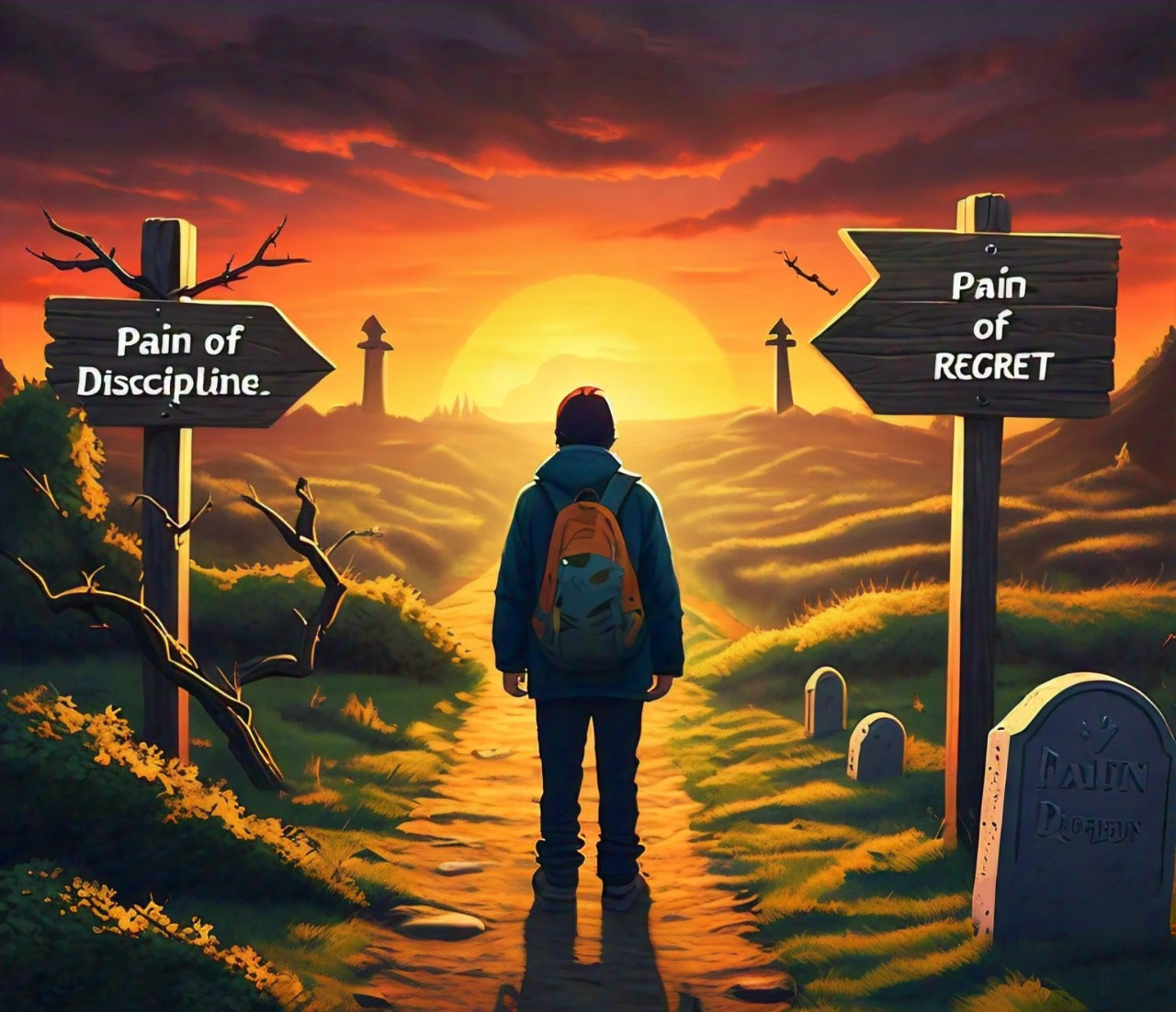At some point in our past, if not now, we all crave to be seen; to be appreciated; to have someone say, “You did that. You made that happen.”
There is something deeply human about wanting credit; it makes our efforts feel validated. But beneath that desire lies a quiet danger: The hunger for recognition can slowly replace the purity of purpose.
History and scripture both warn of this; Odysseus learnt it the hard way; his brilliance freed his men from danger, but his pride; his need to be known cost him ten more years of wandering. The Stoics called this the trap of ego; Christians call it the loss of humility.
With so many people obsessed with applause, doing good quietly feels almost countercultural, but I am of the strong opinion that is where the deepest strength and truest freedom reside.
The Lesson from Odysseus: When Pride Turns Victory into Defeat
The Greek hero Odysseus had already won; he outsmarted the Cyclops and led his men to safety, but then, just as he was free, he turned back to shout his name, to make sure everyone knew who had triumphed. That single act of vanity drew the wrath of Poseidon, the father of the Cyclops and delayed his homecoming by a decade.
It is a story about how ego steals peace; how needing credit turns accomplishment into bondage. The Stoics would say: Do the right thing, then move on, because the moment you demand recognition, you hand over your peace to the opinions of others.
Let us think about it together; how many of our victories have been soured because we needed someone to notice? How often have we robbed our own joy by seeking validation instead of quiet contentment?

You see, my dearest readers, true strength lies not in the applause we receive, but in the restraint to walk away knowing we did what was right even if no one ever knows.
Ego is a quiet destroyer; it most times does not storm into our lives in such a way that is obvious; it slips in unnoticed, disguising itself as confidence, independence, and self-assurance, but if it is left unchecked, it separates us from reality, from others, and even from ourselves.
The Stoics warned against this trap long before modern psychology gave it a name; they understood that ego blinds us to truth, deafens us to feedback, and builds walls where bridges should be. It convinces us we already know enough, that we are always right, and that humility is weakness, but history, philosophy, and experience all point to the same truth: Ego is the real enemy of growth, connection, and wisdom. And until we confront it, we will never see the world or ourselves clearly.
Continue Reading: Why Ego is Your Enemy
The Stoic Lesson: Virtue is its Own Reward
Marcus Aurelius once wrote, “A good person is someone who helps others, not because it is convenient, but because it is right.”
The Stoics believed that virtue; the pursuit of wisdom, courage, justice, and temperance is valuable for its own sake. You do NOT need to be thanked for being kind, or praised for being honest, because the act itself is enough.
But unfortunately that is not how some people in the modern world see it. Today and in many spaces kindness is often performed for likes, attention, or self-image. We are tempted to broadcast goodness instead of embodying it, but again the Stoic reminder is timeless: Doing good for recognition corrupts the act itself. When we no longer need credit, we are finally free to act from integrity, not ego, and that is when virtue becomes who we are, not what we perform.
I used to think I was a “good” person; you know the type that holds the door open, texts back quickly, donates to charities, gives to friends, listens without interrupting, and yeah, I liked being kind and I liked being known for it even more, but then something unsettling crept in quietly, sometimes even very loud in my ear or rather I should say heart, but mostly quietly, and like a whisper behind every act of my generosity: Am I doing this for them or for me?
There it was and just like that; the uncomfortable question that stripped the shine off my shiny deeds. Quick question, have you been there? Have you ever had that thought? Have ever onced asked yourself:
- Was my kindness really just a well-dressed version of self-interest?
- A clever way to be liked, respected, needed?
- Did I give to others only because it made me feel good, look good, sleep better at night?
- Was my good deeds just an extension of my own selfishness?
I did ask myself these questions and suddenly, for most of the time the good deed I had done had a shadow over them.
Continue Reading: Are Your Good Deeds Just An Extension Of Your Selfishness?
The Christian Reflection: Your Father Who Sees in Secret
Jesus taught the same principle and more:
When you give to the needy, do not let your left hand know what your right hand is doing, so that your giving may be in secret. And your Father, who sees in secret, will reward you.
Matthew 6:3-4
The Kingdom of God runs on a different economy, and here, the quiet heart is greater than the loud gesture. God sees what others overlook; the unseen act of kindness, the unspoken forgiveness, the faithful diligence with no applause; these are the moments that echo in eternity.
The world measures value by visibility, but God measures it by sincerity. When we do good without needing credit, we align ourselves with divine character, humble, generous, and free from the tyranny of pride.
So I recently watched a video where the pastor said this; though not word for word but accurately what you are about to read, he said: It is easy to label someone as generous because they gave, especially when the giving is big, bold, and public. And I honestly couldn’t agree more because the pastor was very very much on point. You see, we often associate generosity with grand gestures, impressive donations, or public acts of charity, but the truth is this: True generosity is not defined by the size of the gift or the spectacle of the moment; it goes deeper than that. Let me put it like this: It is possible to give WITHOUT being generous but it is impossible to be generous without being a giver.
One thing about generosity that might not be obvious to many is that: Generosity is not just about what you give, or even how much you give; it is very very much also about the heart from which the giving flows. A person who is truly generous will unlikely or for most of the time give NOT for recognition, guilt, or obligation, but from a place of love, compassion, and sincere care for others; it is a quiet strength, a posture or the positioning of the heart that speaks louder than any public display.
I like how Apostle Paul puts it, in 1 Corinthians 13:3:
Continue Reading: Beyond the Giving: The Heart of True GenerosityAnd though I bestow all my goods to feed the poor, and though I give my body to be burned, and have no love, it profiteth me nothing. – 1 Corinthians 13:3 KJV
The Psychological Side: Why We Crave Credit
Our need for recognition is not just pride; it is sometimes of fear. Fear that we do not matter; fear that our efforts go unseen, and fear that our value depends on validation.
Psychology tells us that when our sense of worth is tied to others’ approval, we will always be chasing applause that never satisfies. The dopamine rush of recognition fades quickly, and this leaves us hungry again, but when our motivation shifts, from being seen to being true, we find peace that external praise can never give.
Doing good quietly does not make you invisible; it makes you grounded. You no longer perform for approval, but you live from purpose.
The purpose of life is not to be happy. It is to be useful, to be honorable, to be compassionate, to have it make some difference that you have lived and lived well. – Ralph Waldo Emerson
From many self-help books to carefully crafted social media feeds, the message is clear: be happy, stay happy, and if you’re not happy, fix it. We’re told that happiness is the ultimate goal; the endgame of a life well lived, but what if that pursuit, while enticing, is not enough? What if pure, true and deep rooted happiness is a byproduct of something deeper, richer, and more enduring?
Ralph Waldo Emerson dared to say what few do: The true purpose of life is not to be happy. It is to be useful! It is to be honorable! It is to be compassionate! And most importantly, it is to make a difference! To leave the world just a little better than we found it! Emerson was not dismissing happiness; he was redefining the path to it; he was pointing to something more lasting than pleasure: purpose.
Continue Reading: Beyond Happiness: The Purpose-Driven Life
The Virtue of Quiet Greatness
The greatest people in virtue can be the least recognized. The mother who prays unseen for her children; the worker who stays honest when no one’s watching; the friend who forgives without demanding an apology. These are the quiet acts that hold the world together; they do not always make headlines, but they make heaven proud.
And in today’s world of self-promotion, humility is rebellion. Doing good without needing to be seen is a radical act of faith, because in the end, it is not applause that fulfills you; it is integrity.
Read Also: Things Don’t Make The Man
Read Also: Don’t Sell Out, Don’t Be Cheap
Read Also: Never Attribute to Malice: When People Let You Down; It’s Usually Not About You
Conclusion
Credit fades. Applause dies down. Recognition moves on to the next person, but the peace that comes from doing what is right, for its own sake, endures.
So today, my dearest reader, resist the urge to announce your good deeds. Let your excellence speak quietly; let character be your credit, because when you stop needing to be seen, that is when your light shines brightest.





